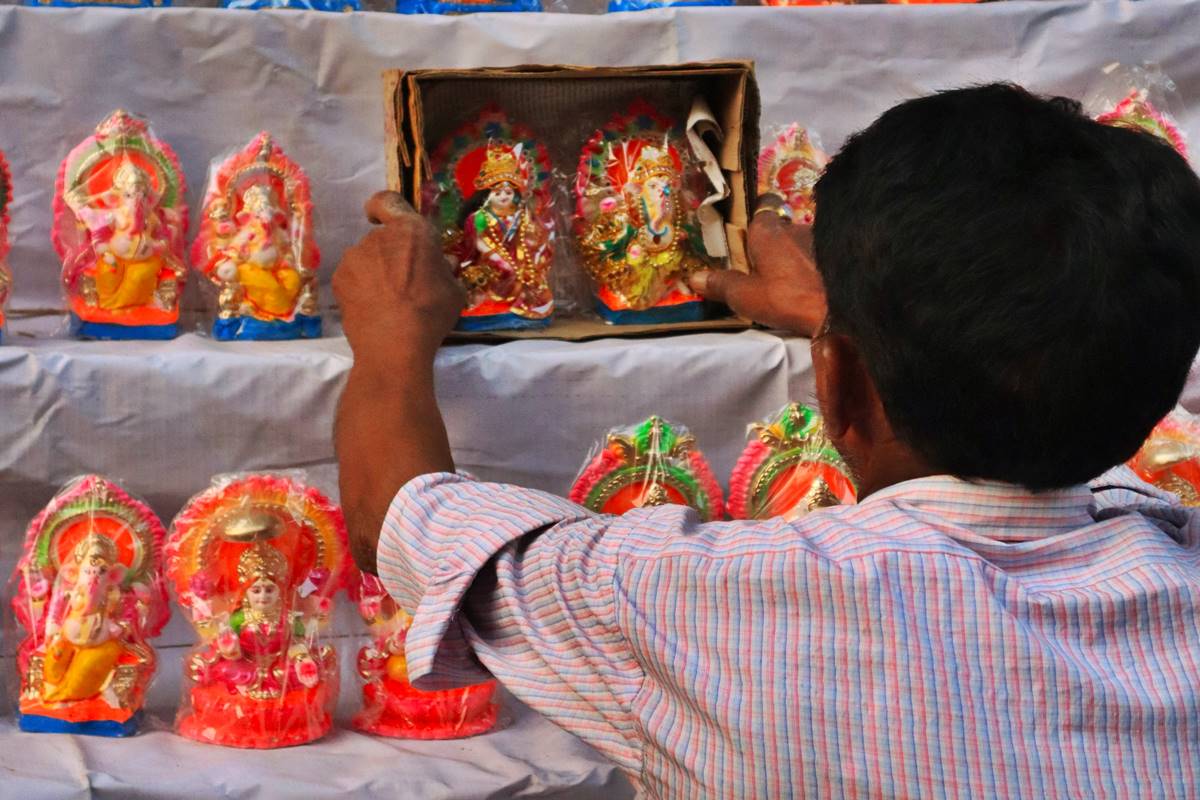Mango: Why this king of fruit can be the king of health
Discover the health benefits of mangoes: rich in antioxidants like beta-carotene, essential for glowing skin, and supportive of gut health with its fiber and vitamins.
Discover the richness of Poila Baisakh, the Bengali New Year celebration, marked by traditions, feasts, and cultural events across West Bengal.

Kolkata shop selling idols of Lakshmi and Ganesh for Poila Baisakh
Observed as Puthandu in Tamil Nadu, Rongali Bihu in Assam, Vaisakhi in Haryana, Punjab, and various Northern states, Poila Baisakh in West Bengal occupies a central place in the hearts of the Bengali community. Poila Baisakh, derived from Poila (first) and Baisakh (the first month of the Bengali calendar), commemorates the onset of the Bengali New Year or Noboborsho and is characterized by a day replete with traditions, ritualistic practices, cultural events, and sumptuous feasts.
This year, the Bengali New Year falls on April 14, a Sunday, and the entire state is gearing up to celebrate with great enthusiasm. However, what truly heralds the commencement of this Bengali New Year is the Choitro sale, occurring a few days prior to Poila Baisakh. Characterized by substantial discounts on a wide array of items, the Choitro sale (Choitro being the last month in the Bengali calendar) signals a clearance sale.
For Bengalis, Poila Baisakh commences with rising at dawn, adorning new sarees and kurtas, and seeking blessings from the elders. Meanwhile, for businesses, the festival is marked by queuing up at temples to have their halkatha blessed or by conducting Ganesh and Lakshmi puja at their establishments or homes. Halkatha refers to the opening of new business ledger or account books on the auspicious first day of the Bengali New Year, accompanied by prayers for wealth, prosperity, health, and general well-being. Opening a new halkatha on the auspicious day of Poila Baisakh is believed to be auspicious, bringing good fortune and prosperity to any business.
Advertisement
People also throng to renowned temples such as Dakshineswar, Lake Kalibari, Kalighat, and Belur Math to seek blessings and embark on the New Year with fresh beginnings. Poila Baisakh revolves around spending the day in grandeur and indulging in elaborate meals.
Bengali households are often seen preparing a lavish spread comprising authentic Bengali delicacies. In recent times, Kolkata restaurants specializing in Bengali cuisine have introduced Poila Baisakh special thalis, celebrating the rich culture and gastronomical extravaganza of West Bengal. Malika Banerjee, a PhD scholar, remarks, “Poila Baisakh is synonymous with family time.
It’s the opulent Bengali feast and the thrill of venturing out in the evening to various shops to collect sweet packets that make it truly memorable.” During the evenings, families partake in cultural events, but what truly adds to the charm of this day is the bustling crowds visiting different shops to partake in the festivities and conclude the day on a sweet note by receiving sweet packets and Bengali calendars from the shops and traders.
Advertisement